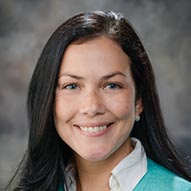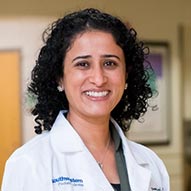Dallas
214-456-2740
Fax: 214-456-6898
Plano
469-303-0055
Fax: 469-303-0655
Landau-Kleffner syndrome is an extremely rare type of epilepsy that requires care from multiple specialists.
The Level 4 Epilepsy Center at Children's Medical Center Dallas provides expert care for children with Landau-Kleffner syndrome and other complex types of epilepsy. Our center was the first in the country to receive Joint Commission certification. This designation reflects our expertise at providing the highest levels of medical and surgical care for common and complex forms of epilepsy.
214-456-2740
Fax: 214-456-6898
469-303-0055
Fax: 469-303-0655
Landau-Kleffner syndrome is an uncommon form of pediatric epilepsy. Children with this disorder develop normally for the first several years of life. Then, due to electrical misfiring of the brain during sleep, they begin to lose their ability to understand words and speak. Rarely, children will experience seizures, as well.
A child with Landau-Kleffner syndrome develops aphasia. This means the child can hear what you’re saying, but they don’t understand what the words mean. Eventually, they may lose their ability to speak, sometimes permanently if not treated promptly.
Symptoms of Landau-Kleffner syndrome typically appear when a child is between 5 to 7 years old. These children seem to be healthy and are developmentally on track with their peers – until symptoms occur. Some children show signs as early as age 2.
Symptoms of Landau-Kleffner syndrome include:
Children with Landau-Kleffner syndrome may also have:
This form of epilepsy is so uncommon that many doctors aren’t familiar with it. A child may receive an incorrect diagnosis of autism or a different type of epilepsy. A fast and accurate diagnosis of Landau-Kleffner syndrome is vital – this enables us to start a child on treatments that may minimize language loss and help a child regain speech.
At Children’s Health℠, our epileptologists (pediatric neurologists who specialize in epilepsy) are among the region’s most experienced Landau-Kleffner syndrome specialists. Our Level 4 Epilepsy Center offers the highest level of diagnostic services for children experiencing seizures.
We conduct brain scans, called electroencephalograms (EEGs), at our Epilepsy Monitoring Unit while your child and you rest comfortably overnight. When appropriate, a child may go home with a portable EEG device. These tests help us pinpoint seizure activity and diagnose Landau-Kleffner syndrome.
Close to 1 in 4 children with Landau-Kleffner syndrome have a change, or mutation, in the GRIN2A gene. This gene change may make a child more prone to Landau-Kleffner syndrome.
Specialists in our Neurogenetics Disorders Program use a method called genomic sequencing to identify this gene change in a child’s DNA. This requires a simple blood test or cheek swab. We’re among the top pediatric centers in the country with the expertise to offer this service.
Not everyone with this genetic change develops Landau-Kleffner syndrome. Scientists are still trying to figure out why certain children get this epilepsy disorder.
Children’s Health offers one of the nation’s most comprehensive programs for children with Landau-Kleffner syndrome. We bring together a team of specialists to help manage all symptoms.
Children who begin an intensive treatment plan early may be able to regain some speech and communication skills. Your child’s health and future are our priorities. We offer fast interventions designed to give your child the best possible outcome.
Most children with Landau-Kleffner syndrome respond well to medications to control seizures. Our deep experience with Landau-Kleffner syndrome means we know which medications can best help your child. A specialist is available 24/7 to answer your medication questions.
Children who have the changed GRIN2A gene may benefit from a medication that targets the faulty gene. If your child is eligible, our Neurogenetics Disorders Program provides your family with access to this investigational treatment. Children’s Health is one of a few pediatric centers in the country focused on gene therapies for children with neurological disorders.
Early and frequent speech therapy care is key to helping a child with Landau-Kleffner syndrome communicate again. Children with this syndrome need different types of speech instruction and treatment than other children. Some children use sign language or pictures to communicate. Our speech therapists have experience using these therapies to help children with Landau-Kleffner syndrome.
Children with Landau-Kleffner syndrome are more likely to have ADHD, behavioral problems, anxiety and depression. Our care team helps your family manage these issues. We offer:
Rarely, a child may need surgery when seizures don’t respond to medications. Our pediatric neurosurgery program is among the best in the country, as ranked by U.S. News & World Report. Our neurosurgeons have experience performing multiple subpial transections, where a surgeon makes small cuts into the outer layer of the brain to stop seizure activity. This surgery may put an end to seizures and prevent greater language loss.
We offer advanced care for children with Landau-Kleffner syndrome at our nationally recognized epilepsy centers.




Approximately 9 out of 10 children stop having seizures when they enter the preteen years. Language problems are more persistent. Almost 8 out of 10 children will always have some difficulties communicating. Children who develop the disorder after age 6 – when they’ve had more time to develop basic speech skills – have a better chance of regaining some communication skills.
This disorder is linked to a mutation, or change, in a gene, that can occur in a child or can be inherited from a parent. Not everyone with this change in the GRIN2A gene develops Landau-Kleffner syndrome, so it’s possible for a parent to have the change and not know it. There’s a 50% chance of a parent passing the changed gene to a child. The child may or may not develop Landau-Kleffner syndrome. Our genetic specialists can determine if your family has this changed gene.
Studies suggest that boys may be more likely to get Landau-Kleffner syndrome. But girls also get the disorder.